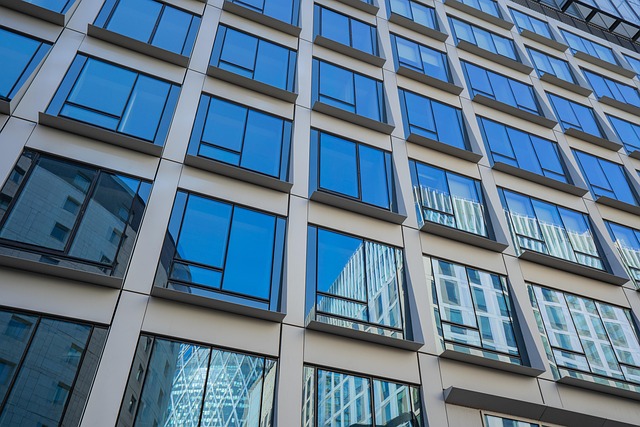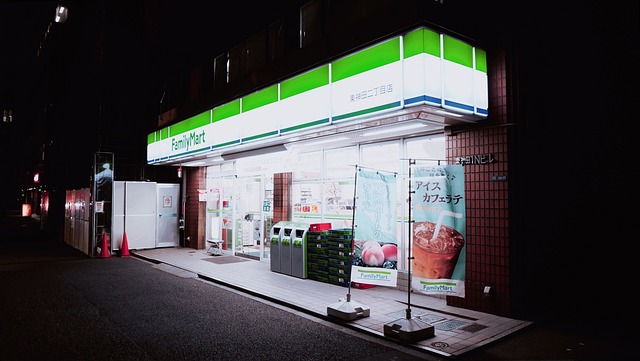In Denver's competitive commercial real estate market, investors seeking loans must demonstrate financial strength with robust business plans. Lenders offer tailored products for high-risk properties, assessing property value, occupancy rates, and borrower creditworthiness. Options include traditional bank loans, hard money lending, and online platforms with varying interest rates, terms (up to 30 years), and amortization schedules to suit investor needs. Lenders carefully evaluate market trends, property potential, borrower health, and revenue strategies for favorable loan terms in this dynamic environment.
“Dive into the world of commercial real estate loans in Denver, where understanding financing options is key for successful property investments. This comprehensive guide explores the fundamentals, eligibility criteria, and various types of financing available to Denver investors. From interest rates and repayment terms to crucial factors lenders consider, we demystify the process. Whether you’re a seasoned investor or new to the market, this article provides valuable insights into navigating commercial real estate loans in Denver.”
- Understanding Commercial Real Estate Loan Basics in Denver
- Eligibility Criteria for Property Investment Loans in CO
- Types of Financing Options for Denver Real Estate Investors
- Interest Rates and Repayment Terms Explained
- Key Factors Lenders Consider for Commercial Property Loans
Understanding Commercial Real Estate Loan Basics in Denver

In the vibrant landscape of Denver, understanding commercial real estate loan basics is a crucial step for investors looking to navigate this bustling market. Commercial real estate loans, unlike their residential counterparts, are designed to fund larger properties like office buildings, retail spaces, and industrial facilities. These loans often come with varying terms, interest rates, and collateral requirements, reflecting the higher risks associated with commercial investments. Lenders in Denver, from local banks to national institutions, offer a range of loan products tailored to meet different investment needs.
When considering a commercial real estate loan in Denver, it’s important to evaluate factors such as property value, occupancy rates, and the borrower’s financial health. The competitive yet robust real estate market in Denver means that lenders are often selective, particularly for larger loans. Therefore, borrowers should prepare comprehensive business plans, strong credit histories, and substantial down payments to increase their chances of securing favorable loan terms.
Eligibility Criteria for Property Investment Loans in CO

In Denver, individuals looking to invest in commercial real estate can access various loan options tailored to their needs. However, eligibility criteria for property investment loans are stringent due to the high-risk nature of such ventures. Lenders typically require a robust credit history and a substantial down payment, often 30% or more of the property’s purchase price. This ensures that borrowers have a significant personal stake in the investment, reducing the risk of default.
Additionally, lenders assess the potential income generated by the property through rental income or expected appreciation. A solid financial plan and stable cash flow are essential to demonstrate repayment capability. Borrowers should also expect to provide detailed business plans, financial statements, and appraisals to substantiate the loan request. These measures help ensure that the investment is not only feasible but also sustainable in the long term, aligning with the best practices for commercial real estate loans in Denver.
Types of Financing Options for Denver Real Estate Investors

Denver real estate investors have a variety of financing options available for their commercial real estate loan needs. One common choice is traditional bank loans, which offer fixed or variable interest rates and terms ranging from 10 to 30 years. These loans are suitable for both purchase and refinancing, providing long-term stability and predictable monthly payments.
Another option gaining popularity among Denver investors is hard money lending. Hard money loans are typically short-term, secured by the property itself, and offer faster approval times compared to traditional bank loans. They are ideal for those seeking flexible terms or needing funds quickly for renovation projects or other opportunities. Additionally, online lenders and crowdfunding platforms have entered the scene, offering alternative financing solutions with diverse repayment structures and often lower barriers to entry for smaller-scale investors in commercial real estate loan transactions.
Interest Rates and Repayment Terms Explained

When considering a commercial real estate loan in Denver, understanding interest rates and repayment terms is paramount. Interest rates for these loans typically fall into two categories: fixed and adjustable. Fixed-rate loans offer consistent monthly payments throughout the term of the loan, providing borrowers with budget predictability. Adjustable-rate loans, on the other hand, see periodic changes to the interest rate based on market conditions, potentially resulting in lower initial payments but with the risk of increased costs down the line.
Repayment terms for commercial real estate loans also vary, ranging from short-term (typically 5-10 years) to long-term options (up to 30 years). Short-term loans often have higher monthly payments but less interest paid overall, while long-term loans offer smaller monthly installments but result in paying more interest over the life of the loan. Lenders also structure repayment terms with various amortization schedules, determining how evenly the loan is paid off over time.
Key Factors Lenders Consider for Commercial Property Loans

When applying for a commercial real estate loan in Denver, lenders carefully evaluate several factors to determine loan eligibility and terms. Key considerations include the property’s location, market trends, and income potential. Lenders assess the demand for similar properties in the area and analyze the borrower’s financial health and credit history.
Additionally, they consider the property’s age, condition, and any renovation or improvement plans. A solid plan for managing and generating revenue from the commercial space is essential. Lenders also look at the borrower’s experience in the industry and their ability to repay the loan, ensuring a low-risk investment for both parties.
Investing in commercial real estate in Denver can be a lucrative venture, but securing the right loan is essential. By understanding the various financing options available and the factors that lenders consider, prospective investors are better equipped to navigate the market. This article has provided an overview of commercial real estate loans in Denver, from basic concepts to key eligibility criteria and repayment terms. With the knowledge gained, you can make informed decisions when exploring property investment loans in CO, setting the stage for a successful real estate journey.
